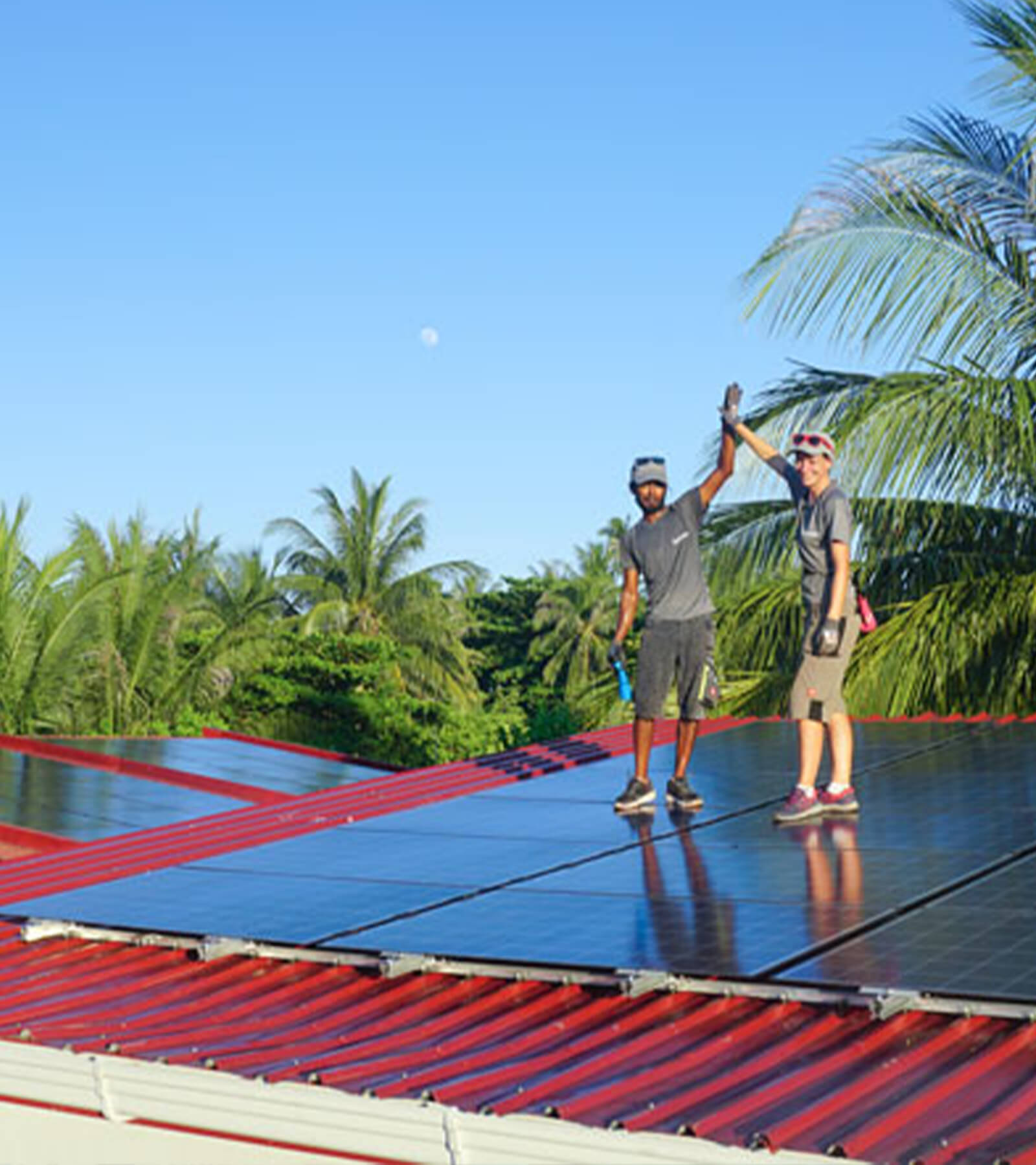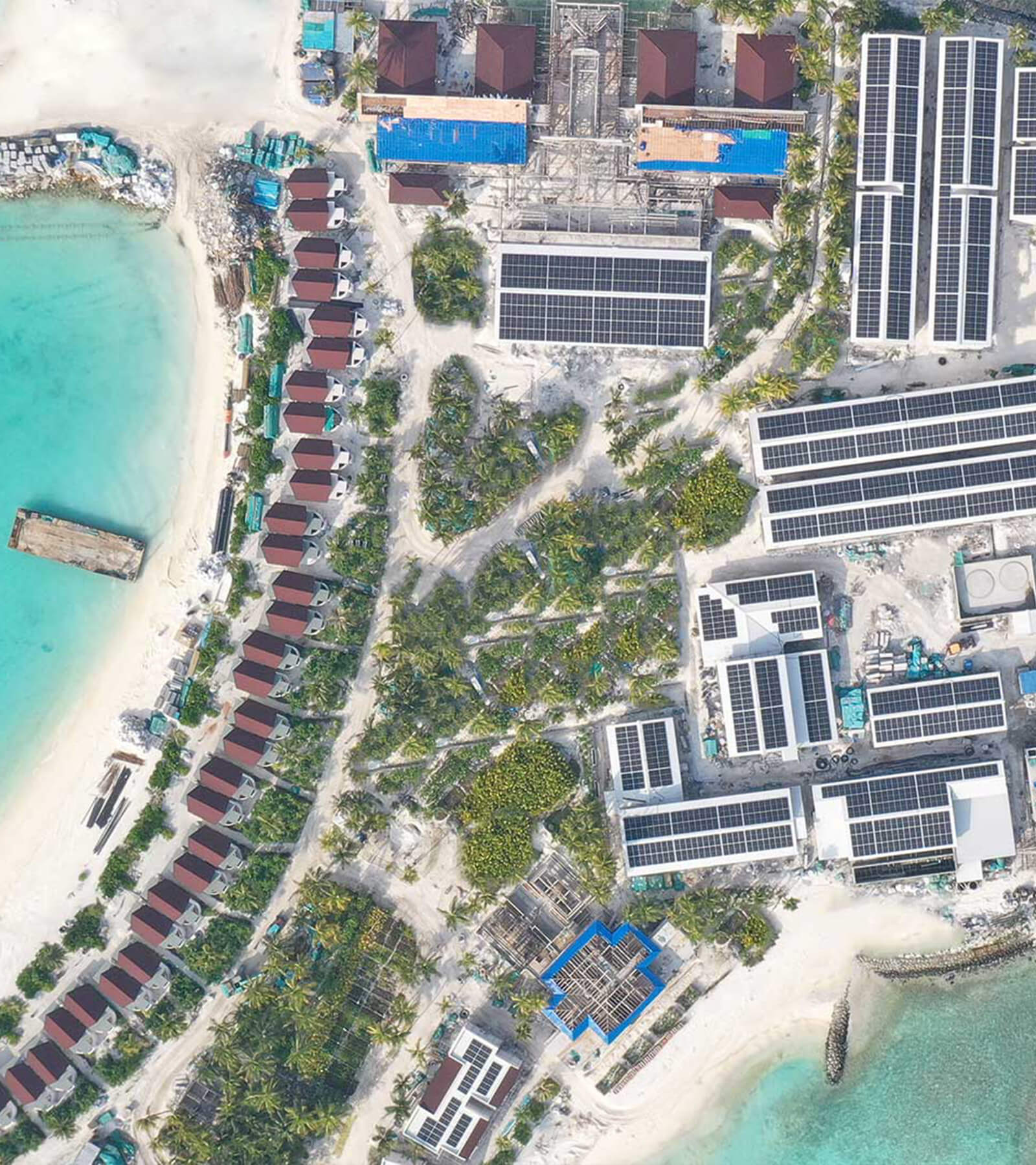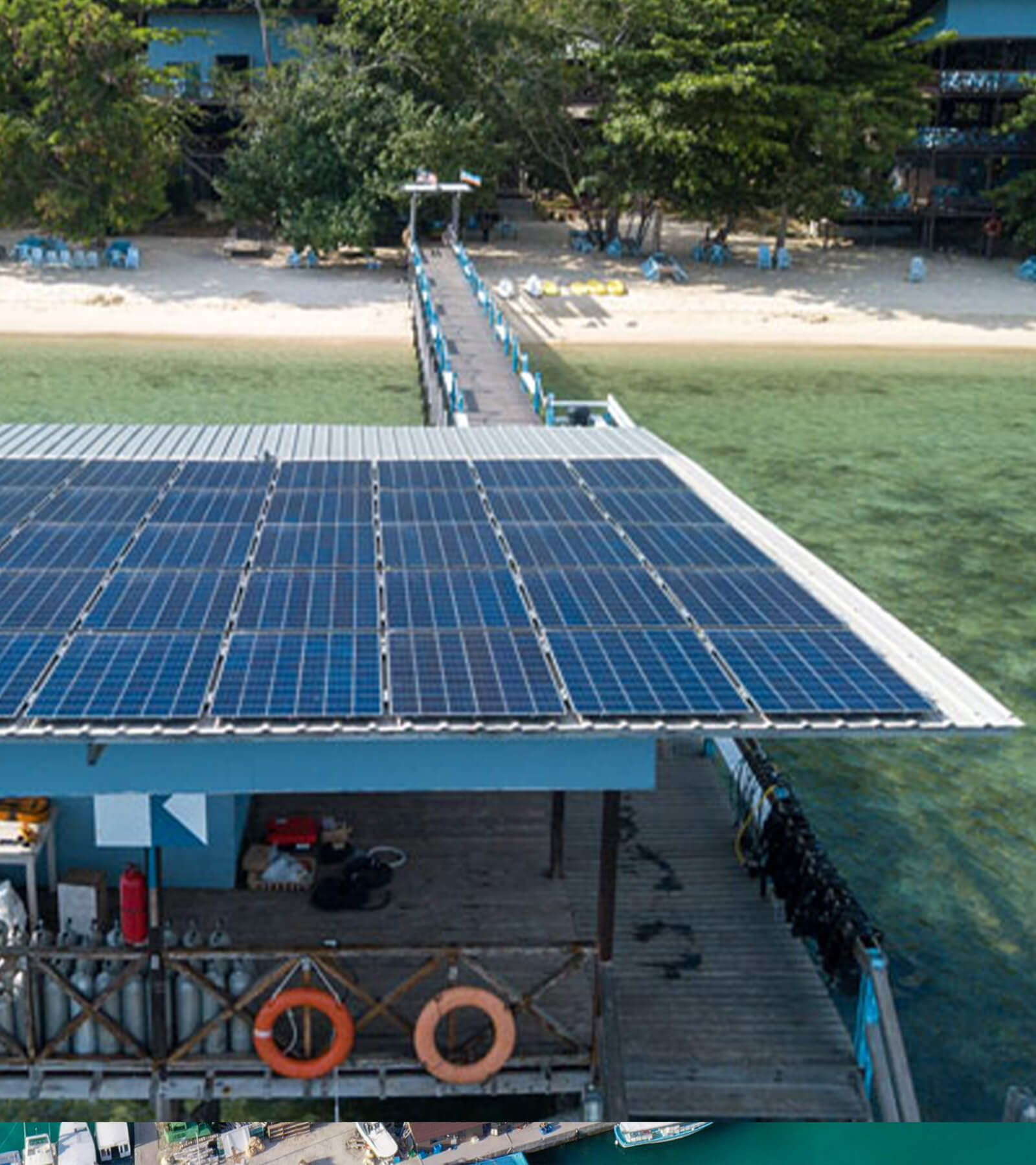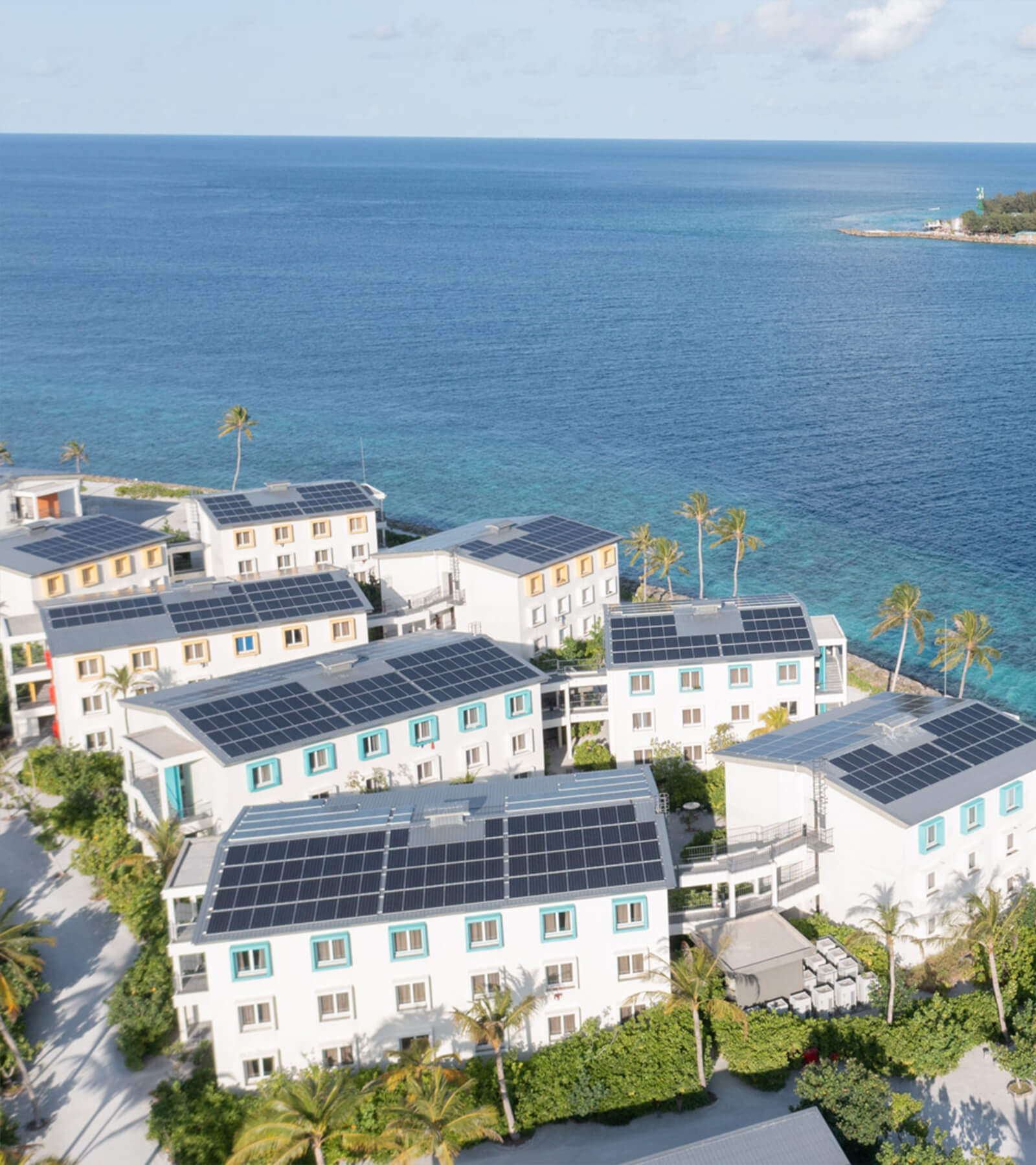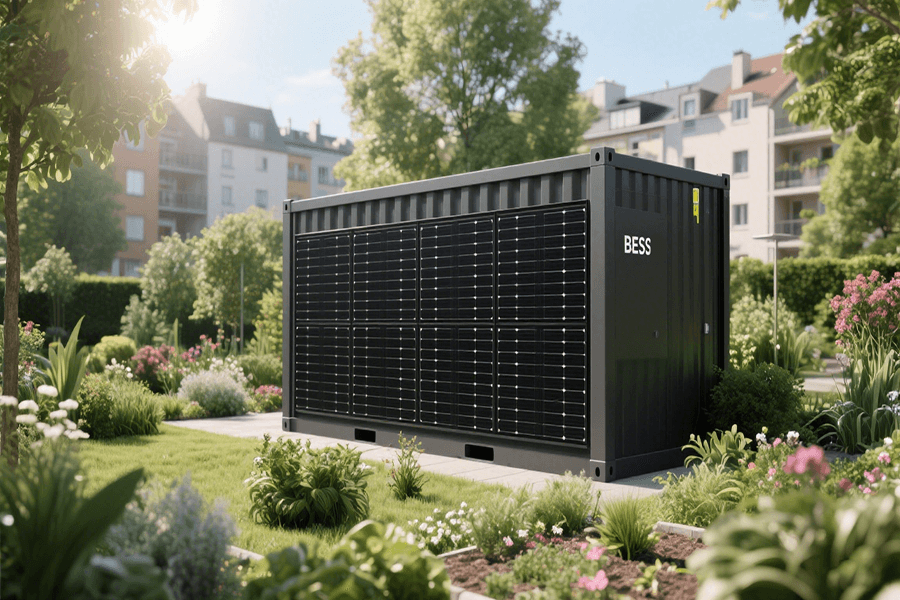
The EU’s 2025 Green Rush—Why Gardens Can’t Survive Without BESS
The EU’s Urban Green Deal 2025 isn’t just paperwork—it’s a promise to plant 10,000+ new community gardens across European cities by year’s end. These green patches aren’t just pretty: they’re urban heat island fighters. The European Environment Agency (EEA Report) confirms they slash local temperatures by 2–4°C—a game-changer for cities like Rome, where summer highs regularly hit 35°C+.
But here’s the catch: keeping these gardens alive needs two non-negotiables:
- Solar-powered drip irrigation: Plants die of thirst faster than you can say “tomato blight.”
- Shared electric tools: Hauling a gas mower through a Berlin neighborhood garden? Not exactly “community-friendly.”
The problem? Solar power is like a moody concert headliner—it shows up big on sunny days but bails when clouds roll in. Cue BESS (Battery Energy Storage System) Containers: compact, weatherproof batteries that store solar energy for rainy (or cloudy) days. They turn “we might run out of power” into “we’ve got this—let’s plant more kale.”
BESS Containers: The Compact Powerhouse for Tiny Urban Gardens
Urban community gardens are cozy—think “balcony-sized plots in Brussels” or “tiny green spaces in Barcelona”—not sprawling farms. BESS Containers are built to fit this vibe: no “we need a bigger garden” panic, just pure, space-saving power. Let’s break down their superpowers:
Compact Design: Tiny Footprint, Massive Impact
Space in EU cities is scarcer than a vegan sausage at a German beer fest. BESS Containers solve this with 5–15 kWh capacities—small enough to tuck next to a tool shed, but powerful enough to keep irrigation and tools running. Paired with 2–5 kW solar panels (the standard for small-scale gardens), they form a self-sufficient energy ecosystem.
Key Performance Data
The table below showcases how different BESS and solar panel combinations perform in real-world urban gardening scenarios:
| BESS Capacity (kWh) | Solar Panel Size (kW) | % Self-Sufficiency (Drip Irrigation) | % Reduction in Municipal Water Pump Use | Annual Savings for a 2,000 sqm Garden* |
|---|---|---|---|---|
| 5 | 2 | 60% | 40% | ~€533 |
| 10 | 3 | 70% | 45% | ~€800 |
| 15 | 5 | 80% | 55% | ~€1,067 |
*(Source: International Energy Agency, IEA Renewable Integration Report; Savings calculated based on average EU water rates)
💡 Gardeners’ Win
A 10 kWh BESS + 3 kW solar setup doesn’t just cut reliance on municipal water pumps by 45%. For a 2,000 sqm garden in Amsterdam, these savings translate to approximately €800 per year. That’s enough to:
- Stock up on 500 packets of organic seeds
- Host 10 community harvest dinners
- Invest in advanced gardening equipment
Low-Maintenance: Set It and Forget It (So You Can Garden)
Gardeners have enough on their plates: weeding, planting, and negotiating with squirrels over the last strawberry. BESS Containers are designed to be as low-maintenance as a resilient succulent plant, fitting seamlessly into the gardener’s busy schedule:
- IP65 Weatherproof Enclosures: Engineered to withstand diverse European climates, these containers remain unfazed by:
-
- Torrential rains in London
-
- Harsh snowfalls in Stockholm
-
- Scorching heatwaves in Madrid
No more fretting about battery survival during extreme weather conditions.
- 5-Year Battery Warranties: Premium models, such as those offered by Maxbo Solar, come with a robust 5-year coverage. This ensures gardeners won’t face unexpected battery replacements during peak growing seasons, like when tomatoes are ripe for harvest.
A 2024 survey by the European Renewable Energy Council (EREC) involving 200 EU community gardens revealed compelling insights:
Critical Stat
Low-maintenance BESS systems reduce garden operational costs by €1,200–€1,800/year. This financial relief allows gardens to:
- Upgrade to high-quality gardening tools
- Invest in nutrient-rich soil and compost
- Treat the community to post-gardening ice cream socials
BESS + EU’s “Just Cities” Initiative: Energy for Every Neighborhood
The EU’s Just Cities Initiative embodies the principle of equity, asserting that green spaces should not be the exclusive privilege of affluent neighborhoods in cities like Paris or Munich. BESS Containers serve as the catalyst for realizing this vision by democratizing energy access. Here’s a detailed breakdown of how these innovative energy solutions are revolutionizing urban community gardens:
Affordable Self-Sufficiency for Volunteer-Led Gardens
Community gardens, often sustained by meager budgets derived from donations and volunteer contributions, face significant financial constraints. BESS Containers offer a transformative solution by reducing their dependence on costly grid power.
- Cost-Effectiveness Analysis: A 5 kWh BESS has an initial investment of approximately €3,500, as per the IEA 2025 Pricing Guide. However, this upfront cost is recouped within 2–3 years through substantial energy savings. This financial model makes renewable energy accessible even to community gardens operating on limited resources.
- Impact on Low-Income Communities: For low-income neighborhoods, BESS Containers eliminate the distressing scenario of having to forgo essential garden maintenance due to high energy costs. No longer will there be conversations like “we can’t afford to water the garden this month,” ensuring that these green spaces continue to thrive and contribute to the community’s well-being.
Inclusive Amenities That Foster Community Engagement
The energy stored in BESS Containers serves a multitude of purposes beyond irrigation, acting as a cornerstone for community building.
| Amenity | Function | Benefit |
|---|---|---|
| LED Lighting | Illuminates the garden in the evenings | Enables busy professionals, such as Berlin’s 9-to-5 workforce, to engage in gardening activities after work, extending the usability of the garden |
| Phone Charging Stations | Provides a convenient charging facility | Addresses the common issue of gardeners forgetting their chargers, ensuring they can stay connected while tending to the garden |
| Small Fridges | Keeps harvested produce fresh | Preserves the quality of the harvest until community pick-up days, promoting food security and sharing within the community |
As aptly stated in the European Commission’s Just Cities Framework, “Energy access is green access.” BESS Containers translate this powerful statement into practical, impactful change, making urban community gardens more sustainable, accessible, and inclusive.
Sizing Guide & EU Funding: Make BESS Work for Your Garden
Not sure where to start? We’ve simplified the process—no engineering degree required.
BESS Sizing 101: Match Capacity to Your Garden’s Size
When it comes to sizing your Battery Energy Storage System (BESS) for an urban community garden, a one-size-fits-all approach simply won’t do. That’s why we’ve distilled the complex calculations into an easy-to-follow framework, tailored to gardens of all sizes.
The Golden Rule
As a general guideline, we recommend 10 kWh of BESS capacity per 2,000 sqm of garden space—roughly equivalent to the size of two tennis courts. This rule-of-thumb ensures your garden has enough stored energy to meet its daily needs, whether it’s powering irrigation systems, lighting, or garden tools.
Customizing for Your Garden
For gardens that fall outside the standard size range, we’ve prepared a detailed cheat sheet to help you determine the optimal BESS capacity.
| Garden Size (sqm) | Recommended BESS Capacity (kWh) | Best For… |
|---|---|---|
| 500–1,000 | 5 | Ideal for balcony gardens in Parisian apartments or small neighborhood plots in Vienna. These compact spaces typically have lower energy demands, such as powering small-scale irrigation systems or LED lighting. |
| 1,000–2,500 | 10 | Perfect for medium-sized gardens found in cities like Amsterdam and Barcelona. These gardens often feature a mix of plant beds, composting areas, and community gathering spaces, requiring a more substantial energy storage solution. |
| 2,500–4,000 | 15 | Well-suited for larger urban farms, such as Berlin’s Prinzessinnengarten and Lisbon’s Horta das Figueiras. These expansive gardens may have additional energy needs, including running greenhouses, refrigeration units for harvested produce, and electric vehicles for transporting goods. |
EU Funding: Get Paid to Go Green (Yes, Really)
The European Union is committed to accelerating the transition to a sustainable future, and they’re willing to put their money where their mouth is. If you’re considering installing a BESS in your community garden, you may be eligible for funding through the Urban Innovative Actions (UIA) Fund. This program provides grants to community-led green projects that demonstrate innovative solutions to urban challenges, including energy storage installations.
How to Qualify (Tips from the UIA Website)
- Prove community buy-in: Demonstrate strong community support for your project by showcasing volunteer sign-ups (aim for at least 20 participants) or obtaining a letter of endorsement from your local council. This evidence of community engagement not only strengthens your application but also ensures the long-term success of your garden.
- Highlight carbon cuts: Leverage the statistic that BESS installations can reduce municipal energy consumption by up to 55% to illustrate the environmental benefits of your project. Emphasize how your garden’s BESS will contribute to the EU’s ambitious climate goals, such as reducing greenhouse gas emissions and promoting renewable energy use.
- Be clear on costs: Provide a detailed breakdown of all project costs, including the BESS itself, solar panels (if applicable), and installation expenses. For most gardens, the total investment typically ranges from €5,000–€12,000. Transparency in your budget will help the UIA reviewers assess the feasibility and cost-effectiveness of your project.
Funding Win
: In 2024, 32% of UIA green grants were awarded to projects incorporating energy storage solutions. One notable success story comes from a community garden in Copenhagen, which secured a €7,000 UIA grant to install a 10 kWh BESS. Thanks to this investment, the garden now saves €900 per year on energy bills, demonstrating the financial benefits of going green.
Maxbo Solar: Your BESS Partner for EU Community Gardens
At Maxbo Solar (www.maxbo-solar.com), we’re not just a provider of Battery Energy Storage System (BESS) Containers—we’re your dedicated partners in sustainable gardening. Our mission is to empower EU community gardeners with clean, reliable energy solutions tailored to their unique needs. Here’s why Maxbo Solar stands out as the ideal choice for your 2025 Green Deal initiatives:
EU-Tailored Designs (No One-Size-Fits-All)
Our BESS models, ranging from 5–15 kWh, are meticulously engineered to adhere to the stringent EU standards, ensuring seamless integration into your garden ecosystem:
- CE Certified: Rest assured that our BESS Containers meet all safety, health, and environmental protection requirements, making them compliant for use across every EU country.
- IP65 Rated: Built to endure the harshest European climates, our systems can withstand the freezing winters of Berlin, the sweltering summers of Madrid, and everything in between. This rugged design ensures reliable performance year-round.
- Space-Saving: We understand the premium on space in urban gardens. Our 10 kWh model, for instance, is compactly designed to fit into the footprint of a small cabinet, making it an excellent choice for even the tiniest garden plots.
Transparent Pricing (No Hidden Fees)
We believe in complete transparency when it comes to pricing—no hidden costs, no unpleasant surprises. Our straightforward pricing structure is as follows:
| BESS Capacity | Price (€) | Inclusions |
|---|---|---|
| 5 kWh | 2,990 | EU-wide delivery |
| 10 kWh | 3,490 | EU-wide delivery, 5-year warranty |
| 15 kWh | 4,290 | EU-wide delivery, 5-year warranty |
Garden-First Support (We Speak “Gardener,” Not Just “Battery”)
What sets Maxbo Solar apart is our deep understanding of both technology and gardening. Our support team is not only well-versed in BESS systems but also in the unique requirements of community gardens. Here’s how we can assist you:
- Customized Sizing: We’ll work with you to calculate the perfect BESS capacity for your garden, taking into account factors like energy consumption patterns, available sunlight, and future expansion plans.
- Local Network: Leverage our extensive network of trusted solar installers across 12 EU countries. We’ll connect you with professionals who are experienced in installing BESS systems in community garden settings, ensuring a smooth and hassle-free installation process.
- Funding Assistance: Navigating the complex world of grants and funding can be daunting. That’s why we offer expert guidance in drafting applications for the Urban Innovative Actions (UIA) and other relevant grants. In 2024 alone, we’ve helped 12 community gardens secure the funding they need to bring their green energy projects to life.
At Maxbo Solar, we’re committed to making sustainable energy accessible and straightforward for every community garden. Say goodbye to technical jargon and complex processes—with us, you’ll have the power you need, exactly when you need it. Let’s collaborate to make your 2025 Green Deal garden a shining example of sustainable urban living.

